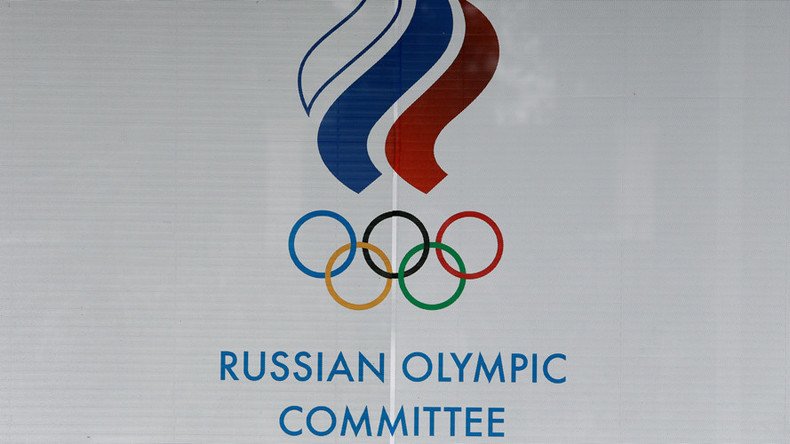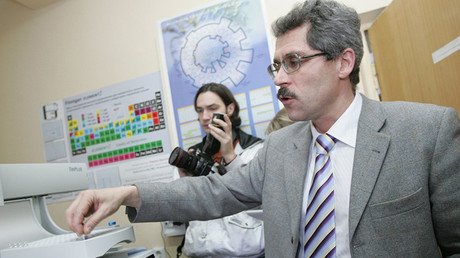Russian Olympic Committee spends 1bln rubles on team’s preparations for Pyeongchang Games

The Russian Olympic Committee (ROC) has spent over one billion rubles ($17.5 million) to prepare the national team for the upcoming Winter Olympics, which will be staged in South Korea in February.
The Committee’s First Deputy President Stanislav Pozdnyakov said on Tuesday that the team’s preparation for the Winter Olympics is in full swing, although the ROC is facing difficulties that traditionally accompany the warm up for the world’s biggest sporting events.
“We have spent about one billion rubles during a four-year course to prepare the national squads for the Winter Olympics. The ROC has complied with all the undertaken commitments, we will help our national federations to deliver decent performance in Pyeongchang next winter,” Pozdnyakov said, TASS reported.
The Russian delegation is expected to visit the host city of the Winter Games, Pyeongchang, to make organizational arrangements at the end of December.
Russia’s participation in this winter’s global sports spectacle is still threatened by an ongoing doping investigation, headed by the International Olympic Committee (IOC), which has yet to conclude.
Two weeks ago, the IOC re-analyzed 254 samples taken from Russian athletes at the 2014 Winter Olympics in Sochi as part of the investigation into the country’s alleged doping violations.
The IOC Disciplinary Commission, which is leading the inquiry into an alleged cover-up of positive doping results in Sochi, has yet to publish the results of the re-tested probes, but is expected to finish its work by the end of the year.
In July 2016, Canadian lawyer Richard McLaren published his report on Russia’s allegedly state-coordinated doping.
The findings contained in the report were instrumental in imposing a ban on Russia’s Olympic athletes and its entire Paralympics team ahead of the 2016 Summer Games in Rio.
Last week, the head of the US Olympic Committee (USOC), Scott Blackmun, urged his international counterparts to take immediate action on Russian doping allegations in advance of the 2018 Winter Games in South Korea.
In his speech, addressed to the USOC Assembly, Blackmun regretted that no punishment had been incurred so far in respect of multiple doping violations at the 2014 Sochi Olympics, which were mentioned in the McLaren Report.
READ MORE: NFL to meet in New York in attempt to solve anthem controversy
“I believe the International Olympic Committee (IOC) is pursuing the findings of the McLaren Report, both in earnest and in good faith, and I believe the IOC when they say there will be consequences for the bad actors,” Blackmun said.
“But at some point, justice delayed is justice denied, and we are fast approaching that point,” he added.
This is not the first bid to discipline Russia for alleged doping breaches. A month ago, the leading international anti-doping agencies issued a joint statement, in which they called on the IOC to ban Russia from participating in the 2018 Winter Games.
READ MORE: 100kg transgender Australian footballer blocked from playing in women’s league
“We have serious doubts that the 2018 Games will be clean due to the incomplete investigation of massive evidence of individual doping by Russian athletes at the 2014 Sochi Olympic Games and given the inadequate testing evidence of Russian athletes over the past four years,” they said.
“A country’s sport leaders and organizations should not be given credentials to the Olympics when they intentionally violate the rules and rob clean athletes.”













